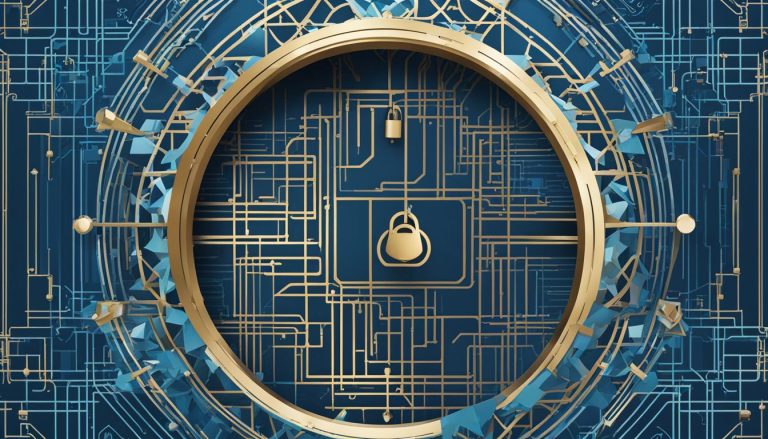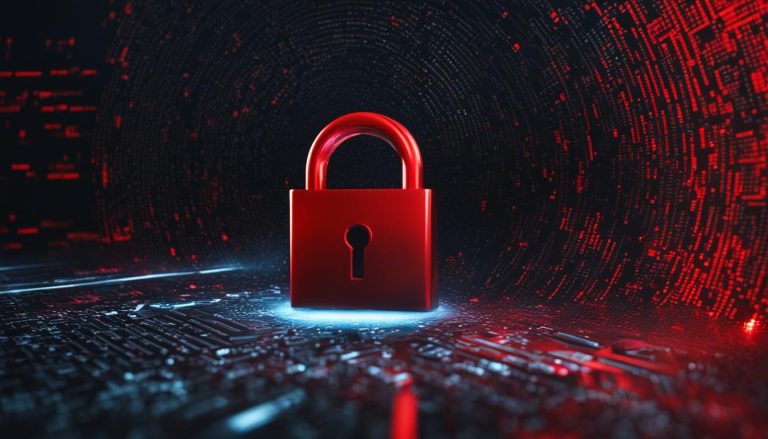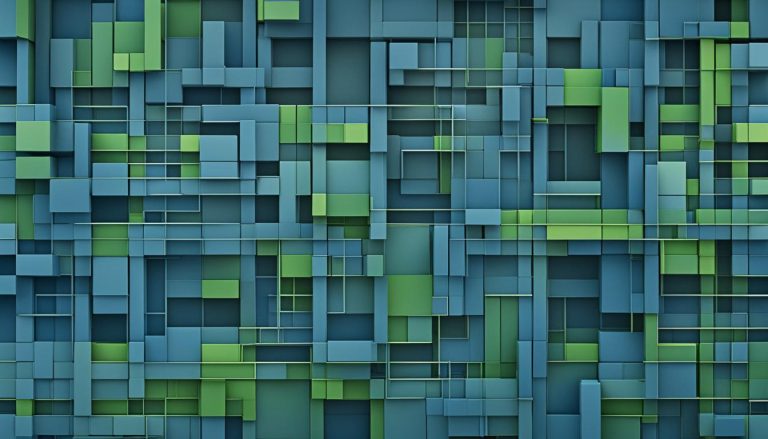Dark web monitoring is a crucial aspect of cybersecurity in today’s digital landscape. The dark web, which is a hidden part of the internet that is inaccessible through standard web browsers, is known for its criminal activities and anonymity. It is estimated that there are tens of millions of URLs and thousands of active websites on the dark web, including forums, marketplaces, and criminal empires. Dark web monitoring involves scanning the dark web for any potential threats, vulnerabilities, or leaked data that may affect an individual or organization’s cybersecurity. It helps in identifying breaches, monitoring for suspicious activities, and staying one step ahead of cybercriminals.
Key Takeaways:
- Dark web monitoring is essential for cybersecurity.
- The dark web is a hidden part of the internet known for criminal activities and anonymity.
- Tens of millions of URLs and thousands of active websites exist on the dark web.
- Dark web monitoring helps in identifying breaches and staying proactive.
- It is crucial to monitor potential threats and vulnerabilities on the dark web.
Dark Web Facts and Myths
The dark web, often misunderstood and shrouded in mystery, is surrounded by a host of intriguing facts and myths. Let’s dive deeper into this enigmatic corner of the internet to uncover the truth.
Dark Web Regulation: Separating Myths from Reality
There is a common misconception that the dark web is completely unregulated and a haven for illegal activities. However, this is not entirely true. While it is true that the dark web provides a platform for illegal transactions and activities, it is important to note that not everything on the dark web is illegal. In fact, some parts of the dark web serve as a refuge for whistleblowers, journalists, and activists who seek to bypass censorship and government surveillance.
It is also worth mentioning that dark web marketplaces do have some level of regulation. Vendors are required to obtain licenses and provide detailed information about their products. This helps to ensure some level of accountability and quality control within these illicit marketplaces.
Dark Web Tracking and Anonymity
Another common myth surrounding the dark web is that it offers complete anonymity and is immune to tracking. While the dark web does provide a certain degree of anonymity, it is not foolproof. Law enforcement agencies have developed advanced techniques and tools to track activities on the dark web and identify individuals involved in illegal activities. In fact, several arrests have been made based on evidence gathered from the dark web.
It’s important to understand that accessing and viewing content on the dark web is legal in most countries. However, engaging in illegal activities or purchasing illegal goods can have severe legal consequences. It is crucial to exercise caution and stay within the boundaries of the law when exploring the dark web.
Separating Myths from Reality
To sum up, the dark web is a complex and multifaceted realm that combines elements of both illegal activities and legitimate uses for privacy and free speech. It is essential to separate myths from reality and recognize that the dark web is not entirely black and white. By understanding the true nature of the dark web, we can navigate it responsibly and make informed decisions regarding its exploration or avoidance.
Dark Web Crime and Deep Web Statistics
The dark web is a hub for various illegal activities, ranging from drug sales to hacking services. Criminals take advantage of the anonymity provided by the dark web to carry out their illicit operations. As a result, law enforcement agencies around the world are constantly working to track and apprehend individuals involved in dark web crimes. It is important to understand the scope and scale of these activities to fully grasp the significance of dark web monitoring in the realm of cybersecurity.
Dark Web Crime Statistics
One of the most prevalent crimes on the dark web is the sale of illegal drugs. According to research conducted by cybersecurity firms, illicit drug marketplaces on the dark web generate billions of dollars in revenue each year.
Another significant dark web crime is the sale of hacked data and passwords. Hackers often sell stolen credentials on underground forums, enabling other cybercriminals to carry out a wide range of malicious activities, including identity theft and financial fraud.
| Dark Web Crime | Statistics |
|---|---|
| Drug Sales | Billions of dollars in revenue annually |
| Hacked Data and Passwords | Frequent sales of stolen credentials |
| Other Crimes | Varied criminal activities, such as weapons trading and human trafficking |
Deep Web Statistics and Dark Web Users
The deep web, which encompasses the dark web, contains a vast amount of information that is not accessible through traditional search engines. It is estimated that the deep web represents approximately 95% of the entire internet, while the dark web accounts for a smaller portion of this.
The users of the deep web and the dark web are diverse, ranging from cybercriminals and terrorists to whistleblowers, journalists, and individuals who value privacy and anonymity. It is crucial to acknowledge that not everyone using the dark web is engaged in illegal activities. In fact, the dark web also serves as a platform for individuals to exercise freedom of speech, bypass government surveillance, and share sensitive information without fear of reprisal.
Dark Web and Cybersecurity
Dark web monitoring plays a critical role in strengthening cybersecurity defenses against the ever-evolving threat landscape. With data breaches becoming increasingly common, it is essential for organizations to proactively monitor the dark web for any signs of compromised data or potential threats. By leveraging dark web threat intelligence, organizations gain valuable insights that allow them to detect vulnerabilities, mitigate risks, and protect their sensitive information.
The dark web serves as a marketplace for cybercriminals, where stolen data, hacking tools, and other illicit goods and services are bought and sold. Consequently, it is a prime breeding ground for cyber threats. Dark web monitoring enables organizations to stay ahead of cybercriminals by constantly scanning the dark web for any mentions of compromised data, leaked credentials, or discussions about potential attacks.
One of the key benefits of dark web monitoring is the ability to detect data breaches early on. When organizations become aware that their data has been compromised, they can take immediate action to contain the breach, strengthen their security measures, and notify affected individuals. Rapid response is crucial in minimizing the damage caused by data breaches and maintaining the trust of customers and stakeholders.
In addition to data breaches, dark web monitoring provides a wealth of actionable threat intelligence. This intelligence can include information about emerging cyber threats, new attack vectors, and even specific targeting of an organization’s industry or sector. Armed with this knowledge, organizations can proactively update their security protocols, patch vulnerabilities, and implement additional safeguards to fortify their cybersecurity defenses.
Overall, dark web monitoring is an indispensable tool in the fight against cybercrime. It empowers organizations to stay one step ahead of cybercriminals, protect their valuable data, and safeguard their reputation. By combining robust cybersecurity measures with proactive monitoring of the dark web, organizations can effectively mitigate risks and minimize the impact of cyber threats.
Table: Key Benefits of Dark Web Monitoring
| Benefit | Description |
|---|---|
| Early detection of data breaches | Monitor the dark web for any mentions of compromised data or leaked credentials, enabling organizations to take immediate action. |
| Proactive threat intelligence | Gain valuable insights into emerging cyber threats, new attack vectors, and industry-specific targeting to enhance security measures. |
| Minimize impact and damage | Swift response to data breaches and proactive measures help contain the breach, protect sensitive information, and maintain trust. |
| Strengthen cybersecurity defenses | Stay one step ahead of cybercriminals by constantly monitoring the dark web for potential threats and vulnerabilities. |
Conclusion
Dark web monitoring plays a crucial role in today’s cybersecurity landscape. By scanning the dark web for potential threats, vulnerabilities, and leaked data, individuals and organizations can stay ahead of cybercriminals and protect their sensitive information.
While the dark web is often associated with illegal activities, it is important to separate myths from reality and recognize that there are legal uses for the dark web as well. Through effective dark web monitoring, organizations can enhance their cybersecurity defenses and mitigate potential risks.
Stay informed, stay vigilant, and prioritize dark web monitoring to safeguard your digital assets.
FAQ
What is dark web monitoring?
Dark web monitoring involves scanning the dark web for any potential threats, vulnerabilities, or leaked data that may affect an individual or organization’s cybersecurity. It helps in identifying breaches, monitoring for suspicious activities, and staying one step ahead of cybercriminals.
Is accessing the dark web illegal?
Accessing and viewing content on the dark web is legal in most countries. However, engaging in illegal activities or purchasing illegal goods can result in legal consequences.
Are dark web marketplaces regulated?
Dark web marketplaces do have some level of regulation, requiring vendors to have licenses and provide detailed information about their products.
Can law enforcement track individuals on the dark web?
While the dark web provides anonymity, web tracking is still possible, and law enforcement agencies use various techniques to conduct online surveillance.
Who uses the dark web?
Users of the dark web vary from cybercriminals and terrorists to whistleblowers, journalists, and everyday people who value privacy and anonymity.
How does the dark web impact cybersecurity?
The dark web has a significant impact on cybersecurity as stolen data often ends up on the dark web for sale to cybercriminals. Monitoring the dark web can provide valuable threat intelligence and help organizations identify vulnerabilities and breaches before they are exploited.
Janina is a senior specialist in information technology


